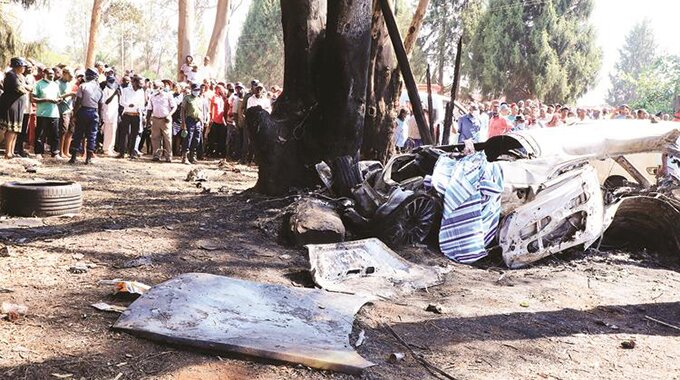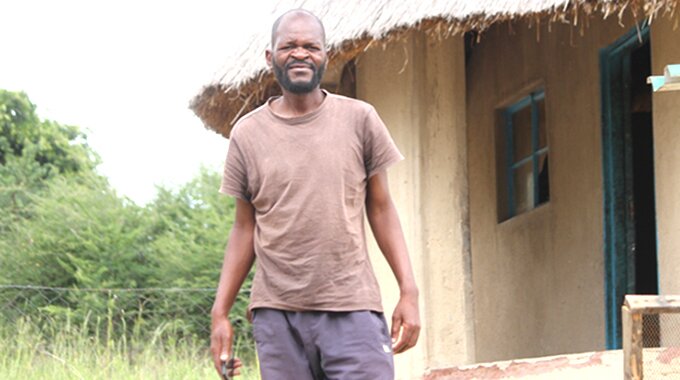Africa Moyo Deputy News Editor
Reducing inflation and maintaining a stable exchange rate are the Reserve Bank of Zimbabwe (RBZ)’s top priorities in the new year to bolster President Mnangagwa’s drive to increase production, grow the economy and create more jobs.
RBZ Governor Dr John Mangudya said in an interview yesterday that he expects the economy to continue responding positively to the policies that Government is implementing.
The long run of primary Budget surpluses since the advent of the Second Republic has allowed the alignment of fiscal and monetary policies.
Economists believe Dr Mangudya’s goals are achievable if Government keeps its promises on fiscal discipline.
Advertisement
Month-on-month inflation is declining, with the rate for November, the latest available figure, falling to 17,50 percent, which is the lowest level since May last year as price rises for food and non-alcoholic beverages largely slowed following far greater exchange rate stability in October. This compares with month-on-month inflation of 38,75 percent in October.
Annual inflation figures start becoming available from February when prices last year and this year will finally both be in the same currency, and thus allow meaningful comparisons.
Having prices 12 months earlier in US dollars and present prices in Zimbabwe dollars has made comparisons meaningless for much of the past year.
Dr Mangudya conceded that last year was “generally tough” but said the central bank was “bullish” that 2020 will be better.
“Our message as the central bank is very clear; our key focus areas are on currency stability and reducing and stabilising inflation in Zimbabwe.
“It is necessary to ensure that we achieve the focus areas that were enunciated or pronounced by the President — productivity, economic growth and job creation.
“We need to ensure that the key drivers (for job creation, economic growth and increased production) are currency stability and making sure that we reduce and stabilise inflation and also that there is social cohesion in the country so that at least we all enjoy what comes in 2020.”
“So our story is very simple. Let’s keep moving; let’s keep praying for the country and let’s increase love among each other; for with love nothing is impossible. We want the spirit of togetherness, it helps on the monetary side, it makes it makes it much easier for us,” said Dr Mangudya. .
Economist Mr John Robertson told The Herald that while “pressures are still very serious” for inflation to rise, the level of increase could be reasonable if Government “keeps its promises”.
Government has, among other issues, promised not to spend more than it earns from taxation on its day-to-day expenses, and reserving borrowing only for a portion of the capital account. Huge monthly deficits were at one time funded with short-term Treasury Bills that increased money supply, resulting in a surge in inflation and a falling exchange rate.
Advertisement
To stabilise the exchange rate, Mr Robertson said there was need to achieve a balance between the supply and demand for foreign currency.
He said if the exchange rate stabilised at US$1:$17, this would see a marked reduction in the prices of goods and services and allow income earners to start getting value from their salaries.
“What we really need the most is to encourage local production (to reduce demand for forex). Unfortunately, we are starting with a very serious handicap on the back of the potentially bad agriculture season,” he said.
Mr Robertson said farmers should increase output by making use of irrigation in the face of erratic rains, a move that will reduce forex demand for food imports.
Another economist, Mr Persistence Gwanyanya, said proposals for “sharp increases in school fees” this year might see Government acceding to civil servants’ demands for a salary increase, which could eventually push up inflation and scupper the RBZ’s plans.
The Government has already stepped in, demanding parental approval for increases in fees.
“We expect a quantum increase in salaries in 2020, which if not carefully managed, will further destabilise the market. Ideally, the envisaged increase should be matched with
judicious management of the fiscus to reduce leakages through nefarious activities such as corruption.
“This, compounded with pressure to subsidise necessities as a way to mitigate the impact of drought, as well as pressure to sort out the situation with utilities; water and electricity, and honour commitments on blocked funds at exchange rate parity, will result in monetary expansion in 2020,” said Mr Gwaanyanya.
Turning to the availability of physical cash from banks, Dr Mangudya said the RBZ would continue to drip-feed the market.
Advertisement
He said the RBZ was happy public confidence in the local currency continues to rise.
“Its availability, as we have said before, will continue to be made on a gradual basis to ensure that by end of the second quarter of the year, the shortage of cash in the banks should be a thing of the past. People should be able to go to the banks to withdraw the cash that they need. That way, you are also improving confidence in the sector and it also helps people wanting to bank their money because they know they will get it back when they want it.
“The limitation (for increasing cash) is that the money needs to printed and the printing comes at a cost. It’s not done for free, we also need foreign currency to print money so we have to do it gradually otherwise it ends up being costly,” said Dr Mangudya.
He urged people to continue using plastic money.
“We have said it many times that our aspiration is to have money and notes in circulation of around 10 percent because South Africa and the rest of the world are on 15 percent, so we want to ensure that we are within that range. So far we are about 7 to 8 percent and we need that to increase, and that is what we are doing.”
Most people need cash for public transport fares until the Zupco fleet expansion allows a transition to plastic money for that requirement. And most people find cash prices in the informal sector are still lower than the prices in formal shops, but the gap is narrowing.
As more cash trickles into circulation it is expected that the gap will be eliminated, making plastic money more attractive on security grounds.
– HERALD








